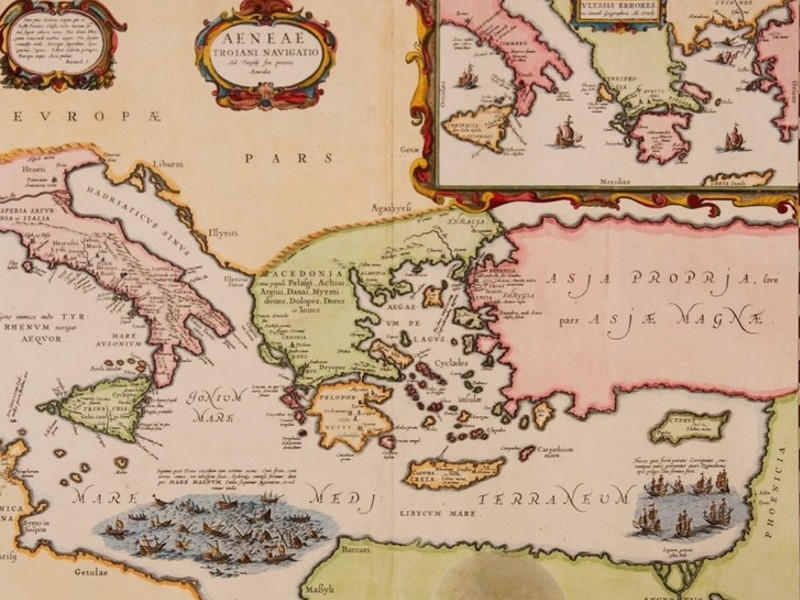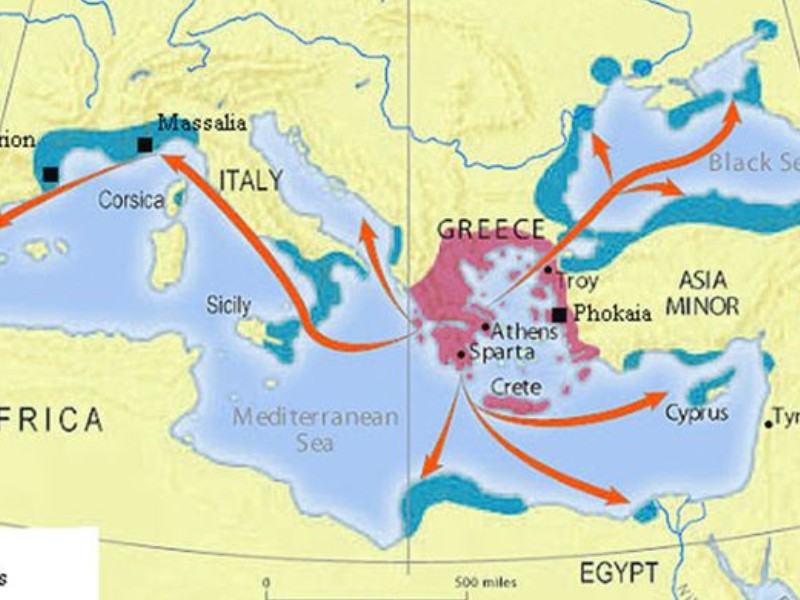The Map of Greek Trade in the Mediterranean
Greek world, as it was understood in its classical and Hellenistic periods, was a prominent power in the Mediterranean, in culture and philosophy, but in trade as well. The geographic location of Greece, with numerous islands and located between the East and West, made it the natural center of commerce. Trade routes crossed the Mediterranean with Greek merchants forming the central stage and connecting Europe, Asia, and Africa. The map of Greek trade in the Mediterranean articulates how the Greeks established a network of cities and colonies that thrived through commercial exchange.
Table of Contents:
Greek City-States and Trade Networks
In the early stages, the Greek city-states (poleis) such as Athens, Corinth, and Sparta, which indulged in regional trade. These cities therefore formed lively market towns, making Athens the focal point of trading activities. Establishing a seafaring capability facilitated the spreading influence beyond its borders.
Dotted with various Greek islands in it, Aegean Sea represented a focus point for shipment activities, which meant that trading activity was engaged between these states through the production and exchange of ceramics, oil from olives, wine and cereals among other products.

The Greek trade network expanded greatly during the 8th and 7th centuries BCE with the establishment of colonies around the Mediterranean. Greek colonies were founded on the coastlines of Asia Minor, the Black Sea, Sicily, Southern Italy (Magna Graecia), and North Africa.
These settlements served as trading posts, facilitating commerce between the Greek mainland and distant lands. Massalia (modern-day Marseille), Byzantium (Istanbul), and Cyrene were cities that became significant centers of trade between Greece and the larger Mediterranean economy.
Trade Routes and Key Commodities
The map of Greek trade in the Mediterranean revealed Greek trade routes that covered the Mediterranean, and significant exchanges took place between the regions. They traded extensively with the Phoenicians, Egyptians, and eventually the Romans. One of the most important traded goods was grain.
Egypt, particularly the Nile Delta, was an important producer of grain that the Greeks imported to feed their growing populations. The Greeks sold the Phoenicians, Egyptians, and Romans luxury goods, including fine pottery, wine, and olive oil.
The Greeks were also known for their skills in creating and trading metal artifacts, especially weapons, tools, and items in bronze. Silver and gold from the regions of Thrace and Macedonia were in high demand, as well as the Greek coinage that became a standard unit of trade.
Textiles were another primary commodity traded; one of the most prized was the purple dye from the Phoenician city of Tyre, although the Greeks traded it for their own high-quality fabrics.
In fact, the Greek ships that passed across the Mediterranean Sea also introduced goods from the East, including spices, silks, and precious stones, which entered the markets of Greece to further widen Greek commerce.
Greek trade not only shaped their economy but also had a profound impact on their culture. Exposure to different peoples and their goods brought new ideas and innovations. Greek pottery styles evolved through contact with other Mediterranean civilizations, and Greek architecture was influenced by Eastern styles. The wealth generated from trade allowed the Greek world to invest in monumental structures, like the Parthenon in Athens, and in intellectual pursuits, like philosophy, art, and science.
Decline and Legacy
The decline of Greek trade networks came with the rise of Roman dominance in the Mediterranean that took over many of the primary Greek trade routes. Although its influence was strong, the peak of Roman occupation was heavily based on the existing routes and practices established by the Greeks.
The map of Greek trade in the Mediterranean highlights a complex and interconnected world where cities, colonies, and merchant networks facilitate the exchange of goods, ideas, and cultures. Mastery in navigation, trade, and commerce by the Greeks left a legacy that would continue to shape the Mediterranean economy for centuries.
